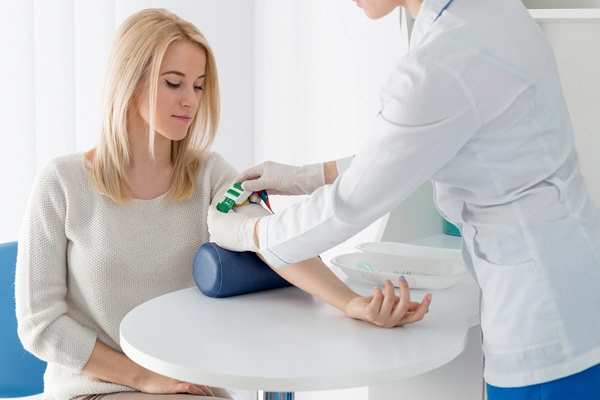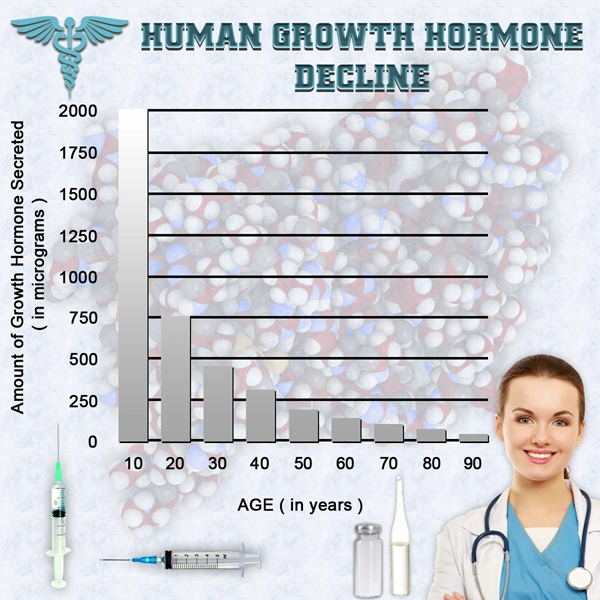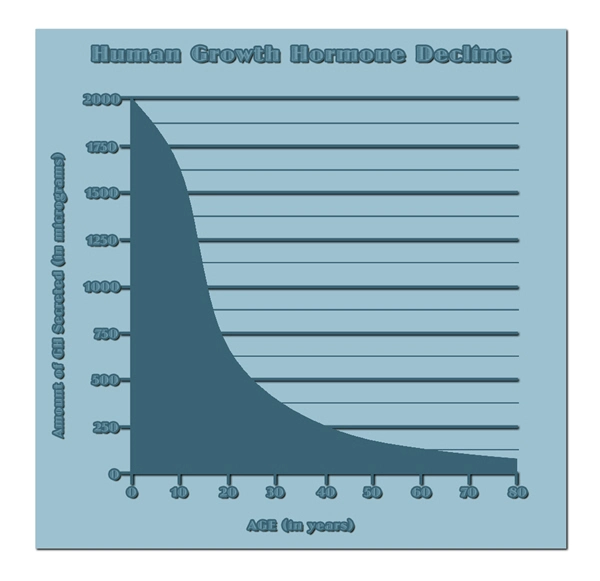Introduction
Erectile dysfunction (ED) is a prevalent health concern among American males, with numerous factors contributing to its incidence. Recent studies have begun to explore the psychosocial aspects of ED, particularly the impact of stress and work-life balance. This article delves into a comprehensive survey-based study involving over 2500 working men to understand how these factors correlate with the onset of ED. The findings aim to provide actionable insights for both healthcare providers and affected individuals, fostering a better understanding and management of this condition.
Study Methodology and Demographics
The study surveyed 2547 American men aged 25 to 65 who were actively employed. Participants were asked to complete a detailed questionnaire assessing their work-life balance, stress levels, and sexual health. The survey included validated scales such as the Perceived Stress Scale (PSS) and the Work-Life Balance Scale (WLBS), alongside questions about ED frequency and severity. The demographic diversity of the sample ensured a broad representation of the American male workforce, encompassing various industries and job roles.
The Link Between Stress and Erectile Dysfunction
The data revealed a significant correlation between high stress levels and the incidence of ED. Men reporting higher scores on the PSS were 3.2 times more likely to experience ED compared to those with lower stress levels. This association underscores the physiological impact of chronic stress, which can lead to increased cortisol levels and subsequent vascular and neurological impairments affecting erectile function. The study suggests that stress management should be a critical component of ED treatment protocols.
Work-Life Balance and Its Impact on Sexual Health
An imbalanced work-life dynamic was also found to be a predictor of ED. Participants who scored lower on the WLBS reported a 2.7-fold increase in ED prevalence. The inability to disconnect from work and the resultant strain on personal relationships and leisure time appeared to exacerbate sexual health issues. These findings highlight the importance of fostering a supportive work environment that encourages healthy work-life boundaries, potentially reducing the risk of ED.
Psychological Factors and Coping Mechanisms
Beyond stress and work-life balance, the study explored the role of psychological factors such as anxiety and depression in the context of ED. Men who reported higher levels of these conditions were more likely to experience ED, suggesting a multifaceted approach to treatment that includes mental health support. The survey also assessed coping mechanisms, with participants who engaged in regular physical activity and mindfulness practices showing lower rates of ED. These insights advocate for holistic health strategies that address both the mind and body.
Implications for Healthcare and Workplace Policies
The study's findings have significant implications for healthcare providers, who should consider integrating stress and work-life assessments into routine ED evaluations. Tailored interventions that address these psychosocial factors could enhance treatment outcomes. Additionally, the results call for workplace policies that promote mental health and work-life balance, potentially reducing the societal burden of ED.
Conclusion
This survey-based study of over 2500 American working men provides compelling evidence of the link between stress, work-life balance, and erectile dysfunction. By understanding these relationships, healthcare providers can develop more effective, personalized treatment plans, while employers can implement policies that support employee well-being. As the conversation around men's sexual health continues to evolve, addressing these psychosocial factors will be crucial in managing and preventing ED.
References
[References to be included based on the actual study and related literature]

- Lifestyle Changes to Combat Erectile Dysfunction in American Men [Last Updated On: December 29th, 2025] [Originally Added On: February 19th, 2025]
- Unlocking Passion: Strategies for Overcoming Erectile Dysfunction and Enhancing Intimacy [Last Updated On: February 25th, 2025] [Originally Added On: February 24th, 2025]
- Embarking on the Journey from Despair to Victory: Navigating Erectile Dysfunction Challenges Gradually [Last Updated On: February 25th, 2025] [Originally Added On: February 25th, 2025]
- Unveiling the Hidden Stories: Triumph Over Erectile Dysfunction [Last Updated On: February 26th, 2025] [Originally Added On: February 26th, 2025]
- Decoding Desire: Unravelling the Biochemical Basis of Erectile Dysfunction [Last Updated On: February 27th, 2025] [Originally Added On: February 27th, 2025]
- Ascend Beyond Adversities: A Modern Take on Masculinity and Erectile Dysfunction [Last Updated On: February 28th, 2025] [Originally Added On: February 28th, 2025]
- Demystifying Misconceptions: A Comprehensive Guide on Erectile Dysfunction [Last Updated On: February 28th, 2025] [Originally Added On: February 28th, 2025]
- Unraveling the Web: How Affective Processing Impacts Erectile Dysfunction [Last Updated On: March 1st, 2025] [Originally Added On: March 1st, 2025]
- Efficacy Spectrum: Topical Comparison between Erectile Dysfunction Drugs [Last Updated On: March 2nd, 2025] [Originally Added On: March 2nd, 2025]
- Revitalizing Intimacy: Exploring Innovative Treatments and Therapies for Restoring Love and Libido in Relationships [Last Updated On: March 3rd, 2025] [Originally Added On: March 2nd, 2025]
- Advancements in Enhancing Intimacy: A Comprehensive Guide to Modern Medical Interventions in Sexual Health [Last Updated On: March 3rd, 2025] [Originally Added On: March 2nd, 2025]
- The Interplay of Love and Libido: Modern Medicine's Impact on Enhancing Intimacy [Last Updated On: March 2nd, 2025] [Originally Added On: March 2nd, 2025]
- Advancements in Sexual Medicine: Restoring Love and Libido for a Brighter Future [Last Updated On: March 3rd, 2025] [Originally Added On: March 2nd, 2025]
- Reviving Love and Libido: Exploring Innovative Medical Solutions for Intimacy and Relationship Spark [Last Updated On: March 2nd, 2025] [Originally Added On: March 2nd, 2025]
- Exploring Modern Medical Interventions for Enhancing Sexual Health and Intimacy: Hormonal Treatments, Psychological Therapies, and Advanced Erectile Dysfunction Solutions [Last Updated On: March 3rd, 2025] [Originally Added On: March 3rd, 2025]
- Comprehensive Guide to Understanding and Treating Erectile Dysfunction [Last Updated On: March 4th, 2025] [Originally Added On: March 4th, 2025]
- Exploring the Emotional and Psychological Impacts of Erectile Dysfunction on Men [Last Updated On: March 5th, 2025] [Originally Added On: March 5th, 2025]
- Understanding Erectile Dysfunction: Causes, Treatments, and Role of Nitric Oxide [Last Updated On: March 6th, 2025] [Originally Added On: March 6th, 2025]
- The Evolution of Erectile Dysfunction Treatments: From Ancient Remedies to Modern Innovations [Last Updated On: March 7th, 2025] [Originally Added On: March 7th, 2025]
- Advancements in Erectile Dysfunction Treatment: Technology's Impact on American Men's Health [Last Updated On: March 8th, 2025] [Originally Added On: March 8th, 2025]
- The Critical Role of Blood Flow in Erectile Dysfunction: Vascular Health Implications [Last Updated On: March 9th, 2025] [Originally Added On: March 9th, 2025]
- Unraveling the Battle: Testosterone's Influence on Erectile Dysfunction in American Men [Last Updated On: March 12th, 2025] [Originally Added On: March 12th, 2025]
- Unveiling Triumph: Real-Life Journeys Through Erectile Dysfunction Recovery [Last Updated On: March 13th, 2025] [Originally Added On: March 13th, 2025]
- Navigating the Path to Recovery: Understanding and Managing Erectile Dysfunction [Last Updated On: March 15th, 2025] [Originally Added On: March 15th, 2025]
- Unveiling the Truth: Debunking Myths About Erectile Dysfunction in American Men [Last Updated On: March 15th, 2025] [Originally Added On: March 15th, 2025]
- Effective Non-Pharmacological Strategies for Managing Erectile Dysfunction in American Males [Last Updated On: March 18th, 2025] [Originally Added On: March 18th, 2025]
- Overcoming Erectile Dysfunction: A United Approach for Couples [Last Updated On: March 18th, 2025] [Originally Added On: March 18th, 2025]
- Erectile Dysfunction: Cultural Impact, Treatment, and Societal Shifts in American Males [Last Updated On: March 19th, 2025] [Originally Added On: March 19th, 2025]
- Innovative Therapies and Technologies Transforming Erectile Dysfunction Treatment [Last Updated On: March 19th, 2025] [Originally Added On: March 19th, 2025]
- Global ED Treatments: Insights and Options for American Men [Last Updated On: March 19th, 2025] [Originally Added On: March 19th, 2025]
- Exploring Alternative Therapies for Erectile Dysfunction in American Males [Last Updated On: March 19th, 2025] [Originally Added On: March 19th, 2025]
- Managing Erectile Dysfunction: A Holistic Approach for American Males [Last Updated On: March 19th, 2025] [Originally Added On: March 19th, 2025]
- Understanding and Managing Erectile Dysfunction: A Holistic Approach for American Men [Last Updated On: March 20th, 2025] [Originally Added On: March 20th, 2025]
- Telemedicine Revolutionizes ED Treatment: Benefits, Challenges, and Future Prospects [Last Updated On: March 20th, 2025] [Originally Added On: March 20th, 2025]
- Erectile Dysfunction: Treatment Costs, Insurance, and Affordable Options for American Men [Last Updated On: March 21st, 2025] [Originally Added On: March 21st, 2025]
- Erectile Dysfunction: Debunking Myths and Understanding Prevalence in American Males [Last Updated On: March 22nd, 2025] [Originally Added On: March 22nd, 2025]
- Diet and Exercise: Enhancing Libido and Combating Erectile Dysfunction in American Males [Last Updated On: March 22nd, 2025] [Originally Added On: March 22nd, 2025]
- Stress, Sleep Deprivation, and Erectile Dysfunction: A Holistic Approach for American Men [Last Updated On: March 22nd, 2025] [Originally Added On: March 22nd, 2025]
- Exploring Effective Treatments for Erectile Dysfunction: Options and Innovations [Last Updated On: March 22nd, 2025] [Originally Added On: March 22nd, 2025]
- Counseling's Crucial Role in Managing Erectile Dysfunction: A Holistic Approach [Last Updated On: March 22nd, 2025] [Originally Added On: March 22nd, 2025]
- Personalized Medicine Revolutionizes ED Treatment: Tailoring Therapies to Individual Needs [Last Updated On: March 23rd, 2025] [Originally Added On: March 23rd, 2025]
- Exercise as a Holistic Approach to Combatting Erectile Dysfunction in American Males [Last Updated On: March 23rd, 2025] [Originally Added On: March 23rd, 2025]
- Understanding Erection Physiology and Managing Erectile Dysfunction in American Men [Last Updated On: March 24th, 2025] [Originally Added On: March 24th, 2025]
- Wearable Technology Revolutionizes ED Management for American Males [Last Updated On: March 24th, 2025] [Originally Added On: March 24th, 2025]
- Emerging Treatments for Erectile Dysfunction: Novel Therapies and Personalized Medicine [Last Updated On: March 24th, 2025] [Originally Added On: March 24th, 2025]
- Managing Performance Anxiety and Erectile Dysfunction in American Men: Strategies and Solutions [Last Updated On: March 24th, 2025] [Originally Added On: March 24th, 2025]
- Erectile Dysfunction as an Early Indicator of Cardiovascular Health in American Men [Last Updated On: March 25th, 2025] [Originally Added On: March 25th, 2025]
- Work Stress and Its Impact on Erectile Dysfunction in American Men [Last Updated On: March 25th, 2025] [Originally Added On: March 25th, 2025]
- Exploring the Cycle of ED, Depression, and Anxiety in American Men [Last Updated On: March 25th, 2025] [Originally Added On: March 25th, 2025]
- Celebrity Influence on ED Awareness: Encouraging Open Dialogue and Proactive Health Management [Last Updated On: March 25th, 2025] [Originally Added On: March 25th, 2025]
- Erectile Dysfunction in American Men: Causes, Diagnosis, and Holistic Management Strategies [Last Updated On: March 25th, 2025] [Originally Added On: March 25th, 2025]
- Managing Erectile Dysfunction: Causes, Treatments, and Lifestyle Tips for American Men [Last Updated On: March 25th, 2025] [Originally Added On: March 25th, 2025]
- ED Clinics Transform Lives: Innovative Treatments and Holistic Care [Last Updated On: March 25th, 2025] [Originally Added On: March 25th, 2025]
- Managing Chronic Illness and ED: Strategies for American Men's Sexual Health [Last Updated On: March 25th, 2025] [Originally Added On: March 25th, 2025]
- CBT: A Promising Psychological Approach to Treating Erectile Dysfunction in American Males [Last Updated On: March 25th, 2025] [Originally Added On: March 25th, 2025]
- Revolutionizing ED Treatment: Breakthroughs in Science and Technology [Last Updated On: March 26th, 2025] [Originally Added On: March 26th, 2025]
- Nutrition's Role in Managing Erectile Dysfunction: Key Vitamins and Nutrients [Last Updated On: March 26th, 2025] [Originally Added On: March 26th, 2025]
- Vascular Health's Crucial Role in Preventing and Managing Erectile Dysfunction [Last Updated On: March 26th, 2025] [Originally Added On: March 26th, 2025]
- Enhancing Sexual Vitality: Diet, Lifestyle, and Supplements for American Men's Health [Last Updated On: March 26th, 2025] [Originally Added On: March 26th, 2025]
- Erectile Dysfunction: Understanding Prevalence, Psychological Impact, and Self-Esteem Recovery Strategies [Last Updated On: March 26th, 2025] [Originally Added On: March 26th, 2025]
- Navigating Erectile Dysfunction: Strategies for Couples to Maintain Intimacy [Last Updated On: March 26th, 2025] [Originally Added On: March 26th, 2025]
- Nerve Damage: A Critical Cause of Erectile Dysfunction in American Men [Last Updated On: March 26th, 2025] [Originally Added On: March 26th, 2025]
- Innovative Therapies and Technology Transforming Erectile Dysfunction Treatment [Last Updated On: March 27th, 2025] [Originally Added On: March 27th, 2025]
- Herbal Remedies for Erectile Dysfunction: Ginseng, Maca, and More Explored [Last Updated On: March 27th, 2025] [Originally Added On: March 27th, 2025]
- Erectile Dysfunction: Causes, Treatments, and Holistic Management Strategies [Last Updated On: March 27th, 2025] [Originally Added On: March 27th, 2025]
- Restorative Sleep's Impact on Erectile Function in American Men [Last Updated On: March 27th, 2025] [Originally Added On: March 27th, 2025]
- Erectile Dysfunction: Impact, Healing, and Support for American Men and Relationships [Last Updated On: March 28th, 2025] [Originally Added On: March 28th, 2025]
- Physical Therapy: A Holistic Approach to Treating Erectile Dysfunction in American Males [Last Updated On: March 28th, 2025] [Originally Added On: March 28th, 2025]
- Holistic Approaches to Overcome Erectile Dysfunction in American Men [Last Updated On: March 28th, 2025] [Originally Added On: March 28th, 2025]
- Managing Performance Anxiety and Erectile Dysfunction: A Holistic Approach [Last Updated On: March 28th, 2025] [Originally Added On: March 28th, 2025]
- Understanding Erectile Dysfunction: Anatomy, Causes, and Management Strategies [Last Updated On: March 28th, 2025] [Originally Added On: March 28th, 2025]
- Natural and Lifestyle Approaches to Managing Erectile Dysfunction in American Males [Last Updated On: March 29th, 2025] [Originally Added On: March 29th, 2025]
- PDE5 Inhibitors: Revolutionizing Erectile Dysfunction Treatment in American Males [Last Updated On: March 29th, 2025] [Originally Added On: March 29th, 2025]
- Navigating ED Consultations: A Comprehensive Guide for American Men [Last Updated On: March 29th, 2025] [Originally Added On: March 29th, 2025]
- Prostate Health and Erectile Dysfunction: Understanding the Vital Connection for Men [Last Updated On: March 30th, 2025] [Originally Added On: March 30th, 2025]
- Erectile Dysfunction: Holistic Management for American Men's Sexual Health [Last Updated On: March 30th, 2025] [Originally Added On: March 30th, 2025]
- Erectile Dysfunction: Impact, Communication, and Recovery Strategies for Couples [Last Updated On: March 31st, 2025] [Originally Added On: March 31st, 2025]
- Erectile Dysfunction: Harnessing Positivity and Mental Strategies for American Men [Last Updated On: April 1st, 2025] [Originally Added On: April 1st, 2025]
- Erectile Dysfunction in American Men: Causes, Stigma, and Effective Management Strategies [Last Updated On: April 3rd, 2025] [Originally Added On: April 3rd, 2025]
- Transforming ED Challenges into Opportunities for Deeper Relationship Intimacy [Last Updated On: April 4th, 2025] [Originally Added On: April 4th, 2025]



List of USA state clinics - click a flag below for blood testing clinics.
Word Count: 551


















































